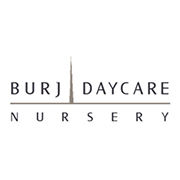EYFS Curriculum in Burj Daycare Nursery, Burj Khalifa
Our daily practice is based on the United Kingdom's Early Years Foundation Stage (EYFS) framework. This allows us to consider each child's individual needs, interests and stage of development in planning a challenging and enjoyable experience for each of the children in all of the areas of learning and development. We want them to have strong foundations so that they can reach 'the top' later in life.
The Early Years Foundation Stage programme has seven areas of learning and development. Three areas are particularly important for igniting children's curiosity and enthusiasm for learning and for building their capacity to learn and to thrive. These three areas, which are known as the Prime Areas are:
- Personal, Social and Emotional Development
- Physical Development
- Communication and Language
There are also four Specific Areas of learning and development, through which the three prime areas are strengthened and applied. The Specific Areas are:
- Literacy
- Mathematics
- Understanding the World
- Expressive Arts and Design
For the youngest children focus is strongest on the three prime areas which are the basis for successful learning in the other four specific areas. For the older age range, the balance should shift towards a more equal focus on all areas of learning as children grow in confidence and ability within the three prime areas.
Montessori Curriculum in Burj Daycare Nursery, Arabian Ranches 2
Through the use of the Montessori approach, this early learning programme will enable a child to acquire knowledge of his or her own through hands-on experience in a safe nurturing environment filled with love and acceptance.
Key Characteristics of the Montessori Prepared environment
- The teacher has an unobtrusive role in the classroom
- The environment and method encourage self-discipline
- The instruction is mainly individual one-to-one
- There is a mixed-age grouping which encourages children to teach and help each other
- The children choose their own work and set their own learning pace
- The child discovers concepts from self-teaching materials and is allowed to work as long as he/she wishes on a chosen activity
- The child discovers own errors from the materials, which are self-correcting
- The teacher recognizes each child's 'sensitive periods'
- The child can work where he/she chooses, move around and talk at will, yet not disturb others
- Multi-sensory materials for physical exploration are available
- The child reinforces his/her own learning by repetition of work and internal feelings of success
Areas of the Curriculum
- Practical Life - The Practical Life area is the most important area in a Montessori classroom. Here, the children carry out simple exercises such as polishing, transferring, pouring and threading. It is through these exercises that the child develops the self-confidence, control and concentration essential for the mastery of the other more advanced areas. Most importantly, Practical Life bridges the gap between home and nursery, between dependence and becoming independent. This allows the child to become very interested in the activity itself and more independent and aware of his/her environment.
- Sensorial - The Sensorial materials help the child to become aware of detail. Each of the activities isolates one defining quality, such as colour, weight, shape, texture, size, sound and smell. It is in this area that math concepts are first introduced and internalized. In addition, the Sensorial aspect improves coordination and concentration and frames the groundwork for language.
- Mathematics - Through the preparatory exercises of the Practical Life and Sensorial stages, the child is already introduced to maths. All the materials are concrete and this allows the child to absorb the basics of mathematics. The children learn how to share, combine, count, and compare using the materials. The children learn maths from using concrete materials while moving to abstract.
- Language and Literacy - The Montessori classroom provides children with the opportunity to develop their vocabulary and self-expression. The children are introduced to phonetic sounds of the alphabet at first and this will lead the child easily to reading. There is also a book corner to encourage a positive attitude to reading.
- Cultural - The Montessori Cultural materials are beautifully designed to help children gain an appreciation of geography, science and history. Children explore with complex concepts and learn technical names of new things.
- Creativity - The children are encouraged to engage and express themselves freely through arts and crafts, music and dance activities.



